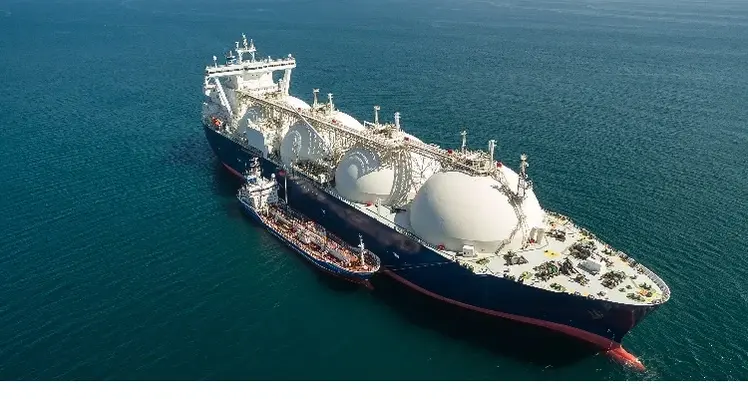New US tariffs and escalating global trade tensions have impacted vessel markets in the first half of 2025, depressing investment in some sectors while accelerating strategic orders in others, according to a report by Veson Nautical, a leading provider of maritime freight management solutions and data intelligence
Tanker slowdown
The tanker sector saw a marked slowdown, with newbuilding orders down 74% y-o-y and S&P volumes falling by 31%. Softer earnings and regulatory uncertainty were key drivers. Medium Range 2 (MR2) product tankers bucked the trend, accounting for over a third of transactions as buyers capitalised on lower values. Usually sized between 45,000 and 55,000 DWT, MR2s are product tankers that typically ship gasoline, diesel, jet fuel and other refined products across regional and intercontinental routes. Values for 15-year-old units fell by 24%, drawing renewed interest in ageing but versatile tonnage.
Pressure on the LNG carrier sector
The LNG carrier sector came under sustained pressure during the first six months of 2025, with average time charter earnings for large vessels falling by 66% y-o-y. The decline was driven by continued fleet expansion outpacing demand growth, along with weaker seasonal fundamentals. As rates fell, demolition activity increased sharply, with seven vessels scrapped—a 250% rise on the same period in 2024. Older steam turbine vessels saw the steepest value declines, with 15-year-old units down by more than 8%. While demand for LNG is expected to rise in the coming years, the current tonnage surplus is likely to keep pressure on earnings through the rest of 2025.
Tariff uncertainty hits the LPG carrier sector
In the liquid petroleum gas (LPG) carrier market, S&P activity slowed by 25% y-o-y, weighed down by trade policy uncertainty between the US and China. Newbuilding orders dropped by 80% compared with the same period last year. Most activity was concentrated at the very large and small ends of the fleet, with limited momentum in the midsize space. Values fell across the board, though long-term averages remain high by historical standards.
“Geopolitical pressure is no longer a background factor; it’s shaping the way owners think about risk, timing and capital,” said Matt Freeman, chief market analyst at Veson Nautical. “From regulation to rerouting, disruption is now part of the operating environment, and owners are recalibrating their strategies accordingly.”








